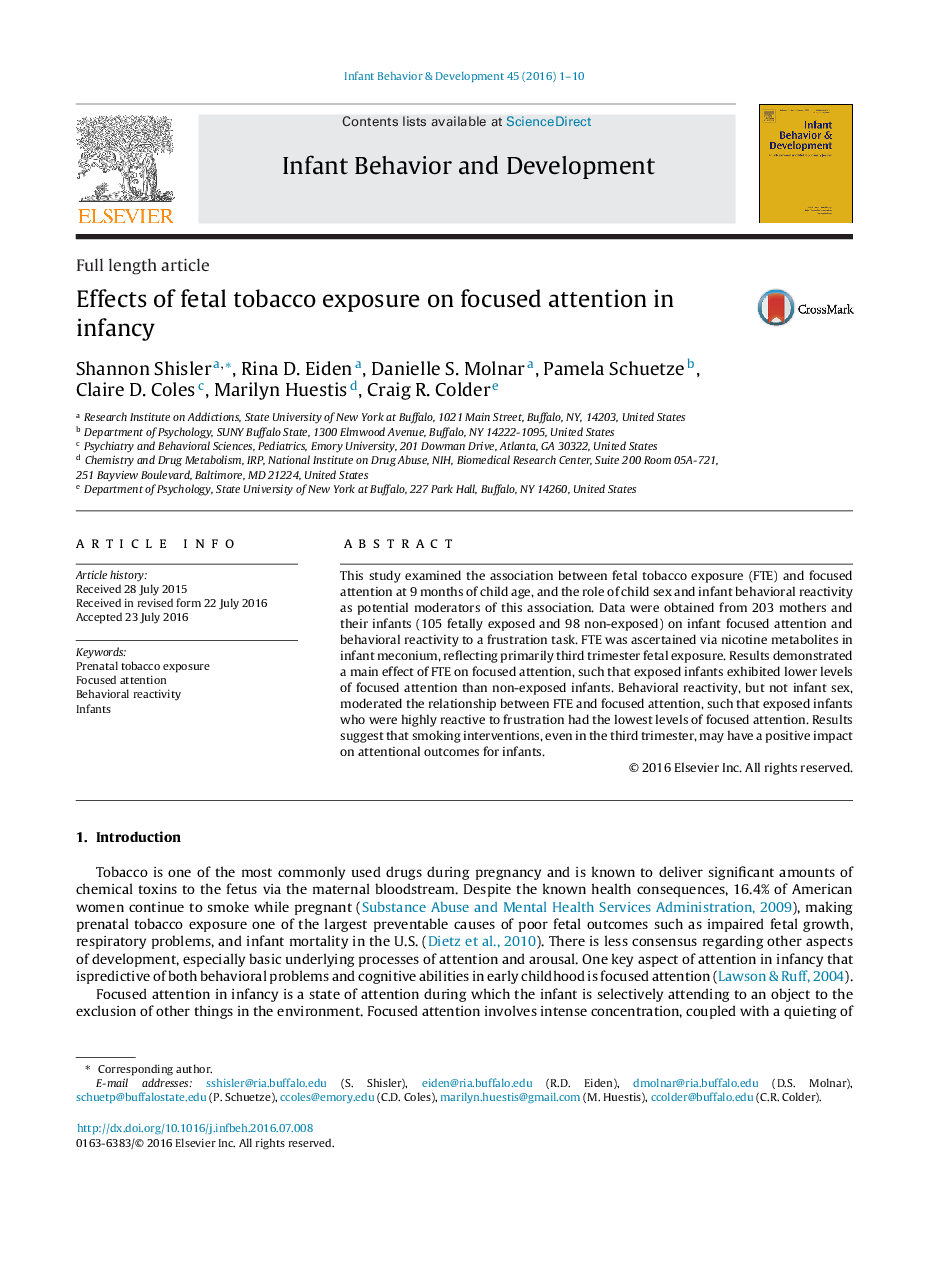| Article ID | Journal | Published Year | Pages | File Type |
|---|---|---|---|---|
| 917124 | Infant Behavior and Development | 2016 | 10 Pages |
•Examined focused attention in infants with fetal tobacco exposure.•Lower focused attention in infants with fetal tobacco exposure.•Gender did not moderate, but behavioral reactivity did.•Infants more highly reactive to frustration had lowest levels of focused attention.
This study examined the association between fetal tobacco exposure (FTE) and focused attention at 9 months of child age, and the role of child sex and infant behavioral reactivity as potential moderators of this association. Data were obtained from 203 mothers and their infants (105 fetally exposed and 98 non-exposed) on infant focused attention and behavioral reactivity to a frustration task. FTE was ascertained via nicotine metabolites in infant meconium, reflecting primarily third trimester fetal exposure. Results demonstrated a main effect of FTE on focused attention, such that exposed infants exhibited lower levels of focused attention than non-exposed infants. Behavioral reactivity, but not infant sex, moderated the relationship between FTE and focused attention, such that exposed infants who were highly reactive to frustration had the lowest levels of focused attention. Results suggest that smoking interventions, even in the third trimester, may have a positive impact on attentional outcomes for infants.
